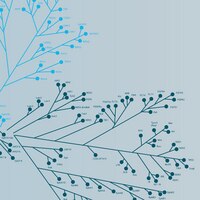The role of ephrins and Eph receptors in cancer.
Surawska, Hanna, et al.
Cytokine Growth Factor Rev., 15: 419-33 (2004)
2004
Zobrazit abstrakt
Eph receptors are the largest receptor tyrosine kinase family of transmembrane proteins with an extracellular domain capable of recognizing signals from the cells' environment and influencing cell-cell interaction and cell migration. Ephrins are the ligands to Eph receptors and stimulate bi-directional signaling of the Eph/ephrin axis. Eph receptor and ephrin overexpression can result in tumorigenesis as related to tumor growth and survival and is associated with angiogenesis and metastasis in many types of human cancer. Recent data suggest that Eph/ephrin signaling could play an important role in the development of novel inhibition strategies and cancer treatments to potentially target this receptor tyrosine kinase and/or its ligand. A deeper understanding of the molecular basis for normal versus defective cell-cell interaction through the Eph/ephrin axis will enable the potential development of novel cancer treatments. This review emphasizes the biology of Eph/ephrin as well as the potential for novel targeted therapy through this pathway. | 15561600
 |
The versatile roles of "axon guidance" cues in tissue morphogenesis.
Hinck, Lindsay
Dev. Cell, 7: 783-93 (2004)
2004
Zobrazit abstrakt
The Netrin, Slit, Semaphorin, and Ephrin families of secreted proteins were originally characterized in the nervous system as guidance cues for axons; however, recent studies demonstrate that many members of these families contribute to the development of a variety of organs. Here, the current knowledge of their roles is discussed with a focus on four tissues: lung, mammary, cardiovascular, and kidney. While many studies indicate a role for "axon guidance" cues in regulating cell-cell and cell-extracellular matrix (ECM) interactions during organogenesis, there is accumulating evidence that they also contribute to tissue development by regulating the transcription and translation of genes encoding key morphogenetic factors. | 15572123
 |



















